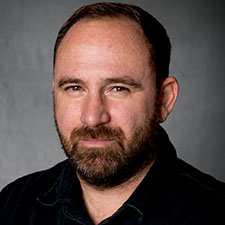
Each day, from her home office in Riverside County, Care Manager Tameika Harris makes frequent calls to a dozen of the 62 Medi-Cal patients in her caseload. Her clients live in unstable housing and are at increased risk for homelessness, so Harris keeps close contact because, she said, “You never know what’s going on.”
With their health records and several providers available in her work group, Harris can connect patients with nurses, behavioral health specialists, and community-based organizations. When a patient doesn’t feel well, Harris can put that person in touch with a registered nurse who can triage the health issue and identify the next steps to provide needed care to the patient.
This alone can save hours of the patient’s time.
“If they were to go to an emergency room, they’d have to wait for one to three hours,” Harris said.
This interdisciplinary care model not only saves time for patients, it also can result in better care and lower costs, according to an evaluation of the California Whole Person Care pilots that set the stage for Medi-Cal to roll it out as a benefit.
In January 2022, California launched a transformational initiative called CalAIM, which has the potential to improve outcomes for the millions of people enrolled in Medi-Cal. As part of the initiative, Medi-Cal began funding coordination of medical, behavioral, and social services for Medi-Cal enrollees facing difficult health and life situations, including people experiencing homelessness. Health plans must partner with providers to offer this benefit, known as Enhanced Care Management — the coordination of health care and related services.
Since September, Harris has been a lead care manager at Pair Team, a San Francisco-based digital health start-up that offers ready-to-go virtual and on-the-ground case management teams for primary care providers and Medi-Cal managed care plans. Harris is the linchpin of Pair Team’s virtual interdisciplinary team, which includes a nurse practitioner, a registered nurse, and a behavioral health manager.
In addition to getting their physical health needs met, clients working through drug or alcohol use disorders can receive guidance over the phone from the team’s behavioral health specialist. Those in need of housing or other social supports are connected to a network of community-based providers.
Pair Team fills an urgent need, partnering with medical providers to deliver Enhanced Care Management to their high-risk populations with a tech-enabled care service model. Seeing the potential in Pair Team, CHCF invested in the start-up to help extend its model to primary care providers across the state.
‘Case Management Isn’t Easy’
The investment in Pair Team aligns with the foundation’s strategy to foster innovative programs that support CalAIM’s Enhanced Care Management services designed to improve care for underserved populations.
“Doing Enhanced Care Management isn’t easy; if it were, everyone would be doing it,” said Ella Schwartz, MPAff, a senior program investment officer at CHCF. “It is time consuming and requires a diverse and integrated care team with the right mix of expertise, access to timely data, and consistent engagement with a patient population that can be difficult to locate.”
Before CalAIM, community health programs that provided services like Enhanced Care Management existed, but they were not available statewide, and they relied on local leaders coming together to find the funds for care coordination.
Now providers and managed care plans can tap into steady streams of state funding to provide patients with wraparound services, such as homeless and housing-related assistance and other social services. However, while the path to sustainable funding has been addressed, potential providers may not have the capabilities or time to build a case management program, especially in rural areas hobbled by workforce shortages and resource challenges.
An effective Enhanced Care Management program requires hiring an interdisciplinary team, building administrative and clinical workflows, and having the technology to establish data streams across providers and health systems, Schwartz said.
“Pair Team believes it can do Enhanced Care Management efficiently,” Schwartz said. “They already have a technology and a care model built for scale to do this type of service.”
Azer Rezk, MBA, owner of Metropolitan Family Clinics of Riverside and San Bernardino Counties, said that before he connected with Pair Team, his clinics struggled to support patients with complex needs because he lacked the resources and staff to meet their behavioral health and social service needs.
“It was difficult for us to find the patients and deliver behavioral health care,” Rezk said. “We couldn’t get enough people to cover all the needs of the program.”
After learning about Pair Team from a colleague, Rezk jumped at the opportunity to partner with them.
“Pair Team was ready to go, and it was so easy to get started with them,” he said.
Serving Populations Most at Risk in California
Pair Team was founded in 2019 by Neil Batlivala, an engineer, and Cassie Choi, RN. The two met while working at the San Francisco start-up Forward, a primary care network serving clients who pay $149 a month for round-the clock, live online access to providers, mini-visits to get lab tests, prescription delivery, and personalized diagnostic care.
Batlivala and Choi created Pair Team to take what they learned at Forward about technology and high-touch care and make it accessible to everyone, including those with complex needs and people with limited means. Over time, Pair Team’s model transitioned into a case management provider under CalAIM.
As CalAIM was gearing up to launch Enhanced Care Management, Batlivala and Choi had seen firsthand how safety-net providers were not going to be able to meet the upcoming need.
“Neither the providers nor the plans have the bandwidth to even think about or tackle [Enhanced Care Management] — everyone is strapped,” Batlivala said.
Initially, Pair Team helped physicians coordinate care by automating administrative workflows behind the scenes and sending referrals. The company added virtual and in-person community health workers and a team of medical and mental health specialists. Today, Pair Team’s hybrid model of care meets patients where they are — in-person at a clinic, in the community, or virtually by phone or video chat. “We all know that there are clinician shortages affecting the health care system,” Choi said. “So, adding on our nurse practitioners and our nurses and behavioral health providers really brings those resources and outcomes to these patient populations.”
The Pair Team founders say their services are intended not to replace safety-net clinics, but to increase options for other care providers in need of help. Pair Team also works with community-based organizations to provide social services to its clients.
Pair Team contracts with Medi-Cal managed health plans as an Enhanced Care Management provider and shares financial incentives with referring community and primary care providers. The company has grown into one of the state’s largest Enhanced Care Management providers. California is just the beginning for Pair Team, Batlivala said, predicting that other states will follow the Golden State’s lead.
“Combining social care and clinical care together is the best thing for the patient, and more states are getting savvy to that,” he said.
Connecting People to the Right Care at the Right Time
Pair Team’s business model is not without risk. To succeed, it must establish partnerships with primary care providers, health plans, and a network of medical and social service providers to make referrals. It must engage busy primary care providers and hard-to-reach patients while demonstrating positive health outcomes for patients and reducing costs. Pair Team will also need to win over critics who would prefer to see traditional safety-net providers deliver these types of services rather than a for-profit start-up.
Batlivala is optimistic about Pair Team’s future because the company isn’t “coming in and building new clinics or building new shelters,” he said. “We sit on top of existing physical assets such as primary care providers, Federally Qualified Health Centers, and community-based organizations like shelters and food pantries, wrapping them with our care team and technology platform.”
And because its model is tech-driven, according to Pair Team, it is able to scale programs across health organizations and geographic locations to meet the growing need for Enhanced Care Management.
For Harris, a lead care manager at Pair Team, working virtually hasn’t impeded her from fostering connections with her clients. Working by phone puts people at ease and allows Harris to foster a rapport with clients, she said.
“You meet people in this job from all backgrounds,” she said. “It’s amazing to see them get the help that they need.”
Authors & Contributors

Brian Rinker
Brian Rinker is a freelance writer and journalist. He covers digital health, public health, child welfare, start-ups, and venture capital. His work has been published by Kaiser Health News, Health Affairs, The Atlantic, Men’s Health, and San Francisco Business Times. Brian received master’s degrees in journalism and public health from UC Berkeley.

Kyusung Gong
Kyusung Gong is an independent photojournalist based in Los Angeles and the Orange County area. He is a former staff photographer at the Orange County Register. He is working on an MFA degree in photography at the Academy of Art University and is a journalism lecturer at Cal State Long Beach.



